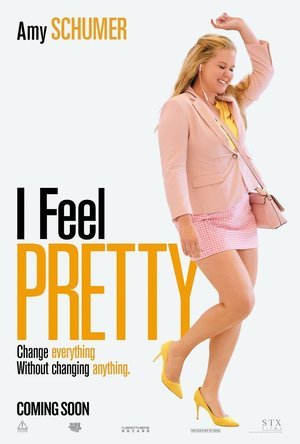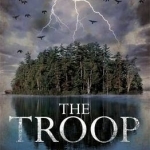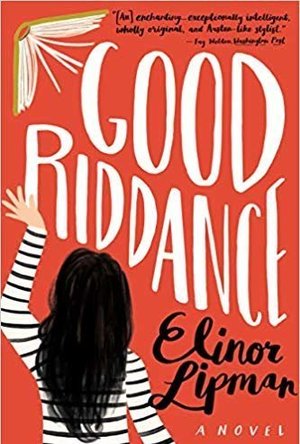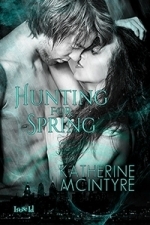Gareth von Kallenbach (980 KP) rated I Feel Pretty (2018) in Movies
Jul 8, 2019
In her quest to look better and feel better, she enrolls in Soul Cycle class at her neighborhood gym. Within minutes, she had injured herself and her pride. Smarting from the injury, we see her looking into the mirror with disdain and self loathing. Schumer conveys the discomfort, embarrassment and self-doubt that every one of us have felt at some point in our lives.
Renee does not give up, going to class the second day. In her enthusiasm, she forgets to tighten a bolt and is taken down by the bike. The event immediately changes how she looks at herself, immediately seeing her visage as everything she would want. The film highlights the all human issue of self-confidence, struggles of imperfection with our bodies and our overall self image, how our own perceptions are our own mental constructs than reality.
Schumer is able to convey the negative thoughts we all have felt about ourselves when we don’t like how we look. However, externally, the self negativity is not noticed.. We can be own worst critic and take down our own self esteem without the help of bullies. Even though Renee’s self image is altered by an accident, her humor, intelligence doesn’t change, her extraverted confidence shines the light directly on her attitude.
There were some moments where I expected a makeover montage. Cause, good 80’s alternative soundtrack and it’s a film about a woman’s lack of self esteem. Surprisingly, it was devoid of any fancy changing room quick changes. The movie addressed how we all have moments where our levels of self confidence and self esteem are reduced due to our own ideas because we all can be our own worst critic.
The story had its moments where I would have liked to see more depth and connection in Renee’s relationships with her best friends Vivian (Aidy Bryant) and Jane (Busy Phillips). These are friends that have known each other for years and I would have like to see a little of the psychic shorthand friends develop over years of knowing each other. I did like how Vivian and Jane didn’t let Renee get away with behaving as an ass. They are not mean in their rejection which is more true to honest friendships.
Amy Schumer’s humor at times can make us a bit uncomfortable because she holds the mirror up to us to teach us how to laugh at ourselves and to show that we are not alone in all these feelings. I enjoyed the movie, even though it would have been good to see more depth in the relationships. It is a perfect Girls Night Out film
Acanthea Grimscythe (300 KP) rated The Troop in Books
May 16, 2018
It’s a fairly short listen, coming in at just over eleven hours. Narrated by Corey Brill, the book tells the story of a bunch of kids and their mentor after a strange encounter with an emaciated man. From there, things spiral downward in a rather interesting turn of events and readers watch the usual trope that comes into play when the threat of apocalypse hangs over a town – or in this case, island. The fact that the cast is mostly teenage boys? That’s of no consequence.
The Troop is what I call a “last man standing” story. I suppose that’s comparable to “final girls” when you think about it. These kids, because that’s all they are, find themselves facing a horror they cannot truly comprehend, and with the military working in favor of the greater good, are on their own. Naturally, that means we’ve got some deep psychological stuff that’s going to go on, as well as several scenes of last minute survival habits – such as harming animals. And, of course, there’s madness tinting this books periphery.
I really enjoyed this approach to a horror story born of what originally begins as a good deed (though clearly is not toward its end). The characters had their own flaws and represented the different types of kids we’re likely to find in a high school class – only, of course, without the presence of any females.
Once again, Cutter has impressed me with his ability to make me cringe, among other things. I definitely look forward to getting my hands on more of his work in the future. Also, the audiobook is worth it. Corey Brill has a gorgeous voice.
Whatchareadin (174 KP) rated Good Riddance in Books
Apr 10, 2019
Thank you to NetGalley and St. Martin's Press for the opportunity to read and review this book.
I remember the thrill of getting my yearbook from middle school all through high school and having all of my friends sign it. I don't think that I ever had or even wanted any of my teachers to sign it though. And I've been to one or two of my reunions and I surely didn't go back and makes notes on what everyone is up to now.
This was a quirky story that had quite a few different elements in it. A little bit of romance, some mystery, and an annoying neighbor. Daphne is newly divorced and trying to find her way in New York City. Her apartment is small and there isn't any room for much more than her. She is going to school to be a chocolatier, but that's not really working out. She tries going back to teaching at Montessori school which she did before she was married. But with the contents of the yearbook and rumors about her mother maybe reaching the public Daphne's plate seems to be overflowing. Can she keep her mom's legacy alive and keep herself from going crazy at the same time?
Merissa (13749 KP) rated Hunting for Spring (Philadelphia Coven Chronicles #1) in Books
Mar 21, 2018
This was a great introduction to a new world, where casters and hunters work to the same end, without working together as much as possible. I have to say, whatever his reasons, Connor's dad was a first-class jerk, with Liam not far behind. I loved how Connor was, and am thankful he turned out that way! Brenna is a sweet and sassy character, fully capable of standing on her own two feet but also willing to stand back when necessary. There is also a bunch of characters I want to know more about, as well as this world as a whole.
This was an exciting read, with plenty of action and adventure. With smooth transitions from one scene to the next, there were also no editing or grammatical errors that disrupted my reading flow. The world building was on point, and all the characters had depth, with their own quirks and foibles. An excellent start to the series that leaves me wanting more. Absolutely recommended.
* A copy of this book was provided to me with no requirements for a review. I voluntarily read this book, and my comments here are my honest opinion. *
Merissa
Archaeolibrarian - I Dig Good Books!
http://www.theromancereviews.com/viewbooks.php?bookid=20637
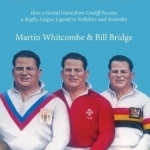
The Indomitable Frank Whitcombe: How a Genial Giant from Cardiff Became a Rugby League Legend in Yorkshire and Australia
Book
Frank Whitcombe, described as 'one of the greatest Welsh rugby league forwards of all time', played...
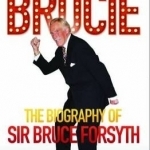
Brucie - the Biography of Sir Bruce Forsyth
Book
Sir Bruce Forsyth, know more affectionately as Brucie, is one of Britain's best-loved stars and a...
Old-Time Religion Embracing Modernist Culture: American Fundamentalism Between the Wars
Book
Old-Time Religion Embracing Modernist Culture focuses on the founding generation of American...
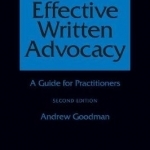
Effective Written Advocacy: A Guide for Practitioners
Book
Is it possible to win your case before arriving at court? The author, a practising barrister for...

Business Plan Premier
Business and Productivity
App
Featured on Entrepreneur.com, VentureBurn, Business News Daily and more! Are you an innovative...
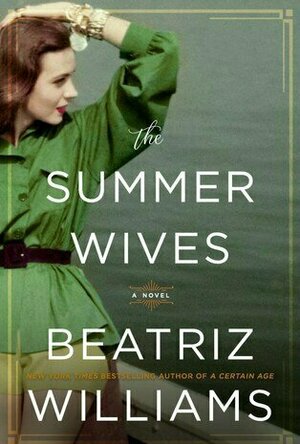
The Summer Wives
Book
In the summer of 1951, Miranda Schuyler arrives on elite, secretive Winthrop Island as a schoolgirl...
